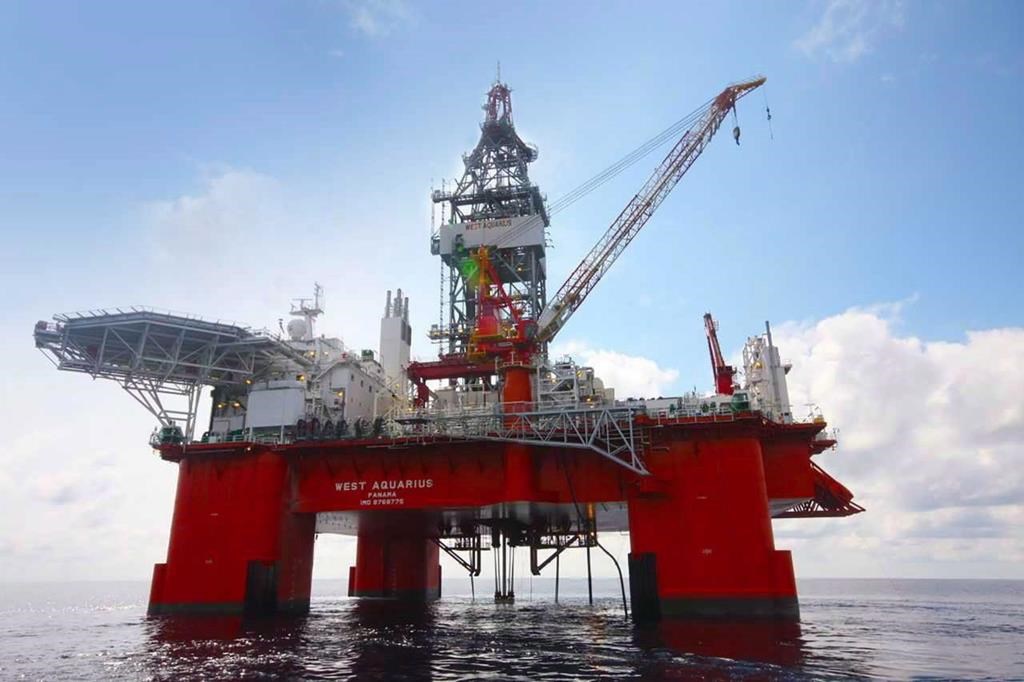BP Canada is scaling back its oil and gas exploration plans off Nova Scotia, giving up half the offshore area included in its exploration licence.

The Canada-Nova Scotia Offshore Petroleum Board said Tuesday the energy giant is surrendering 50 per cent of the area included in its licence – a consolidation of four offshore parcels roughly 300 kilometres southeast of Halifax.
The move comes after Hess Corp., BP’s partner in the Scotian Basin exploration drilling project, announced in November its first well did not encounter commercial quantities of hydrocarbons – just over a year after Shell Canada said it would seal the second of two exploration wells for the same reason.
Though the situation appears to challenge the province’s offshore potential, an energy analyst said the decision is in large part about market forces.
“Shell backing out and BP toning it down says more about the market conditions and the favourability of the market towards this type of production than it does about the actual viability and commercial exploration of this potential resource,” Edgar van der Meer, a senior analyst with NRG Expert, said in an interview from Toronto.
READ MORE: BP Canada finds no ‘commercial quantities of oil’ in Scotian Basin well
In late 2012, petroleum giant BP won the right to explore in Nova Scotia’s offshore after it submitted a $1-billion bid, the highest ever accepted for deepwater exploration rights in Atlantic Canada.
But the offshore petroleum board said Tuesday BP has failed to drill four wells within the first phase of its exploration licence, required for the second phase to be approved.
The company has opted to pay a $1-million deposit to extend the first phase of its exploration licence, which ended Monday, by one year, the board said. BP would still need to apply for authorization if it decides to drill a well during the extension period.

Get breaking National news
Maureen Herchak, a spokeswoman for BP Canada, said the company’s decision to give up half its “very large acreage” comes as a result of routine licence management activity.
She said BP is continuing to evaluate data from its first exploration well in the area – the Aspy D-11 well, which reached a total depth of 7,400 metres – before developing a plan going forward.
“The company looks at this from a long-term perspective,” Herchak said in an interview from Calgary.
Meanwhile, the board said if BP does not drill a well during its extension period, the company would forfeit the deposit and either surrender the remaining area under its exploration licence, or be required to make a $2-million deposit for another one-year extension.
The Nova Scotia government has heavily promoted the province’s offshore oil and gas sector in recent years, estimating a potential resource of 121 trillion cubic feet of gas and eight billion barrels of oil.
Energy Minister Derek Mombourquette said the future of oil and gas exploration in the province remains positive.
“We have interest from major global companies,” he said in an emailed statement. “BP continues to hold parcels, as does Equinor (formerly Statoil).”
Mombourquette said an industry-nominated call for bids is also currently open, and ongoing geoscience work continues to probe the offshore.
WATCH: New Brunswick Liberal MP ‘calls foul’ following foreign oil import comments from Scheer

The Nova Scotia government said last year it plans to invest $11.8 million in geoscience research over the next four years to encourage offshore oil exploration in the region.
The exploration program collects core samples and makes maps of the ocean bottom and sub-bottom.
“This is a long-term process, and we need to be patient,” Mombourquette said. “When the time and market conditions are right, there will be more activity.”
Van der Meer said the province’s investment in the offshore has helped attract big players to the region.
“Oil and gas and natural resources are a significant benefit to both the provinces and the Canadian economy as a whole,” he said. “But of course there are the environmental issues that aren’t to be discounted.”
Last June, BP leaked 136 cubic metres of synthetic drilling mud from its West Aquarius drilling unit, sparking widespread concern about offshore exploration in Nova Scotia.
Mi’kmaq leaders said the incident raises questions about the protection of the lands and waters, while others expressed concern about the potential impact on the province’s lucrative fishing industry.
While van der Meer said offshore oil and gas development is a “very big economic driver,” he said there are multiple stakeholders that can be directly impacted if something were to go wrong.
Meanwhile, he said the next year will be important to determining BP’s future in the region.
“The season in which most of the work can be done is approaching, so at this stage in the game it does look like BP will make another attempt (at exploration).”







Comments